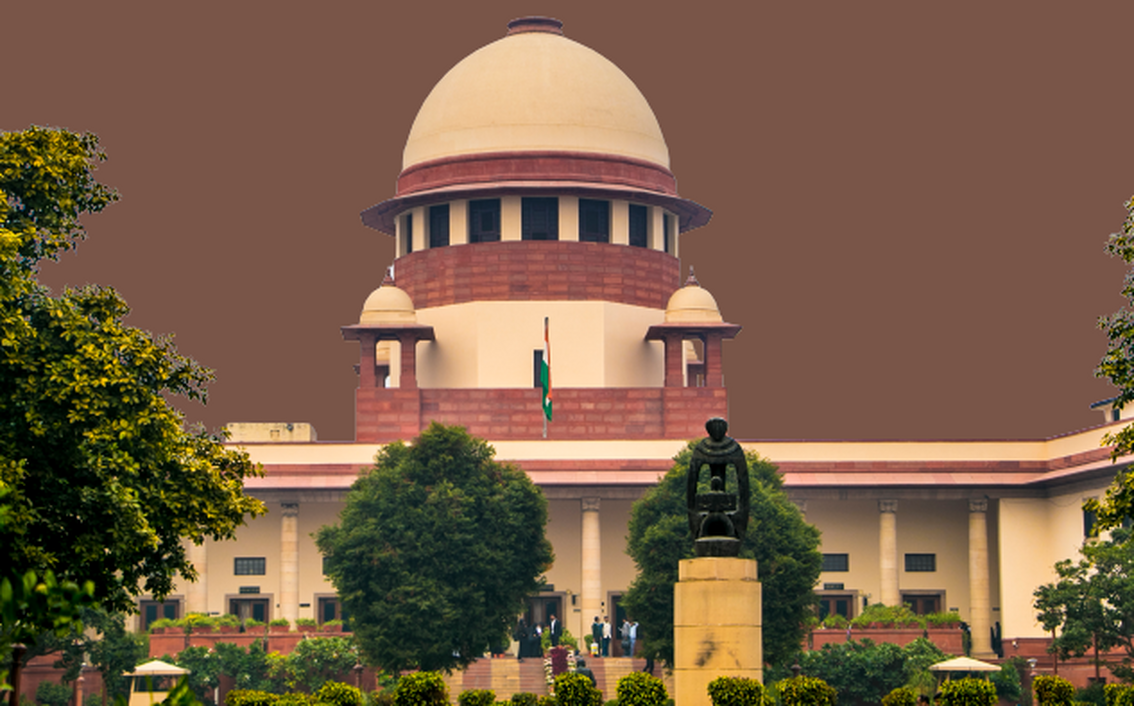Most important ingredient for constituting offence of sexual assault u/s 7 of POCSO Act is ‘sexual intent’ and not ‘skin to skin’ contact: SC

Read Judgment: Attorney General for India & Another vs. Satish & Another
Pankaj Bajpai
New Delhi, November 23, 2021: The Supreme Court has opined that the most important ingredient for constituting the offence of sexual assault u/s 7 of the Protection of Children from Sexual Offences Act, 2012 (POCSO Act) is the “sexual intent” and not the “skin to skin” contact with the child.
A Larger Bench of Justice Uday Umesh Lalit, Justice Bela M. Trivedi and Justice S. Ravindra Bhat therefore observed that the act of touching any sexual part of the body of a child with sexual intent or any other act involving physical contact with sexual intent, could not be trivialized or held insignificant or peripheral so as to exclude such act from the purview of “sexual assault” u/s 7 of POCSO Act.
Going by the background of the case, the Extra Joint Additional Sessions Judge, Nagpur (Special Court) convicted and sentenced the accused-Satish for the offences u/s 342, 354 & 363 of IPC and Section 8 of POCSO Act, by an order passed in the Special Child Protection Case, as he tried to sexually abuse the victim after which she tried to commit suicide.
On appeal, the Bombay High Court acquitted the accused for the offence u/s 8 of the POCSO Act, but convicted him for the offence u/s 342 & 354 of the IPC. The accused was accordingly sentenced to undergo rigorous imprisonment for a period of one year.
After considering the arguments, the Top Court elaborated that restricting the interpretation of the words “touch” or “physical contact” to “skin to skin contact” would not only be a narrow and pedantic interpretation of the provision contained in Section 7 of the POCSO Act, but it would lead to an absurd interpretation of the said provision.
“Skin to skin contact” for constituting an offence of “sexual assault” could not have been intended or contemplated by the Legislature, added the Court.
The Larger Bench opined that the very object of enacting the POCSO Act is to protect the children from sexual abuse, and if such a narrow interpretation is accepted, it would lead to a very detrimental situation, frustrating the very object of the Act, inasmuch as in that case touching the sexual or non-sexual parts of the body of a child with gloves, condoms, sheets or with cloth, though done with sexual intent would not amount to an offence of sexual assault u/s 7 of the POCSO Act.
So far as Section 7 of the POCSO Act is concerned, the first part thereof exhausts a class of act of sexual assault using specific words, and the other part uses the general act beyond the class denoted by the specific words, added the Bench.
Speaking for the Bench, Justice Trivedi highlighted that whoever, with sexual intent touches the vagina, penis, anus or breast of the child or makes the child touch the vagina, penis, anus or breast of such person or any other person, would be committing an offence of “sexual assault”. Similarly, whoever does any other act with sexual intent which involves physical contact without penetration, would also be committing the offence of “sexual assault” u/s 7 of the POCSO Act.
Thus, the prosecution was not required to prove a “skin to skin” contact for the purpose of proving the charge of sexual assault under Section 7 of the Act, added Justice Trivedi.
Considering the objects of the POCSO Act, its provisions, more particularly pertaining to the sexual assault, sexual harassment etc. have to be construed vis-a-vis the other provisions, so as to make the object of the Act more meaningful and effective, added the Bench.
The Apex Court therefore concluded that the High Court while specifically accepting the consistent versions of the victim and the informant about the accused having taken the victim to his house, having pressed the breast of the victim, having attempted to remove her salwar and pressing her mouth, had committed gross error in holding that the act of pressing of breast of the child aged 12 years in absence of any specific details as to whether the top was removed or whether he inserted his hands inside the top and pressed her breast, would not fall in the definition of sexual assault, and would fall within the definition of offence u/s 354 of the IPC.
Accordingly, the Apex Court convicted the accused for the offences punishable u/s 8 of the POCSO Act and u/s 342, 354 and 363 of the IPC.
Sign up for our weekly newsletter to stay up to date on our product, events featured blog, special offer and all of the exciting things that take place here at Legitquest.




Add a Comment